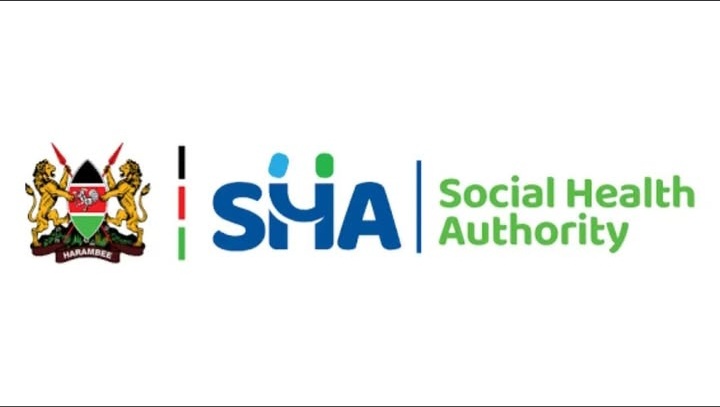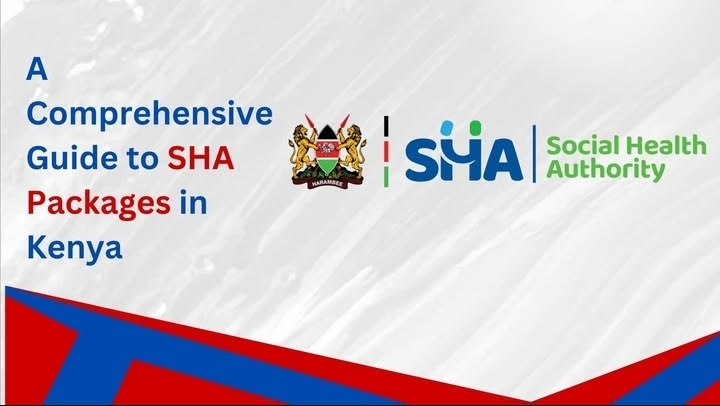SHA Rates in Kenya 2025: Complete Guide for Individuals and Families.
If you are residing in Kenya, health is most probably the cost that is most crucial and cannot be joked with. In 2025, the Social Health Authority (SHA) rates in Kenya have been revised, and the people and families must know the implications of their health contributions. Whether employed, self-employed, or an entrepreneur, it will aid your financial planning as well as avoid any default if you know the revised SHA rates in Kenya.
In this article, we unravel all you need to know concerning SHA monthly rates in Kenya 2025, their comparison to the previous NHIF rates, and what you can benefit from.
What is SHA in Kenya?

The Social Health Authority (SHA) took over from the National Health Insurance Fund (NHIF) in 2024 due to the health reforms in Kenya. The vision seeks to achieve universal health coverage (UHC) for all Kenyans by making payment more sustainable and fair.
Instead of a constant contribution like NHIF, SHA now operates on the rate of income, i.e., what you pay is in relation to your wage or business income. This becomes more relative and cut and dried.
SHA Contribution Rates in Kenya (2025)
The following is the classification of SHA rates in Kenya for 2025:
- Gross salary between less than KES 20,000 per month: Contribution is KES 300 – KES 500.
- Salaried individuals in the earning range of KES 20,000 – KES 50,000: Contribution is KES 750 – KES 1,500.
- Middle-income earners in the income range of KES 50,000 – KES 100,000: Contribution is KES 2,000 – KES 3,000.
- High-income earners (KES 100,000 and above): 2.75% of gross monthly earnings contribution, where it caps at KES 5,000.
- Self-employed people & workers in the informal sector: Proportional minimum flat contributions of KES 500 monthly based on individual income reported.
The Kenya SHA rates 2025 is thus more income-based compared to the previous NHIF flat rates.
SHA Rates for Families in Kenya.
For families, contributions by SHA provide for the main contributor, spouse and dependents (children under 18, or 25 if in education). No additional payments per child are done as compared to private insurance.
- Low-income families pay between KES 500 – KES 1,000 monthly.
- Middle-income families’ contributions are KES 1,500 – KES 3,000 monthly.
- High income families pay up to KES 5,000 monthly, irrespective of family size.
This makes SHA affordable family health cover, compared to private medical covers.
Advantages of Prepaying SHA in 2025.
Prepaying your SHA rates in Kenya guarantees access to:
- Inpatient and outpatient services at public hospitals.
- Reproductive and maternity healthcare services.
- Chronic disease management (diabetes, high blood pressure, cancer management).
- Emergency services and surgeries.
- Preventive care services such as vaccinations and screening.
This is in line with Kenya’s vision of providing cheap health care services to every family.
How to Pay SHA Contributions in Kenya.
Working individuals in salary and employers can make payments of SHA rates through:
- Payroll deductions.
- M-Pesa Paybill Number (registered SHA Paybill).
- Bank transfer through SHA-partnered banks.
Self-employed contributors E-Citizen portal.
Penalty for late payment may accrue, thus automatic deduction is preferable.
SHA vs NHIF Rates: What Changed
- NHIF applied flat charges (KES 150 – 1,700 monthly).
- SHA applies a percentage contribution, so payments become more progressive for various income groups.
- NHIF had limited benefits, while SHA has tried to increase benefits for chronic illnesses and preventive care.

This reform is intended to lower out expensive health spending in Kenya.
New SHA rates in Kenya (2025) are a breakthrough for families and individuals. By shifting to an income based scheme, the government attains sustainability, fairness and access to better healthcare services.
If you work, make sure that your employer has made the required adjustments to your deductions. For the self-employed, make sure that you pay your monthly SHA contributions by bank transfer or mobile money to avoid fines and enjoy quality healthcare cover.






